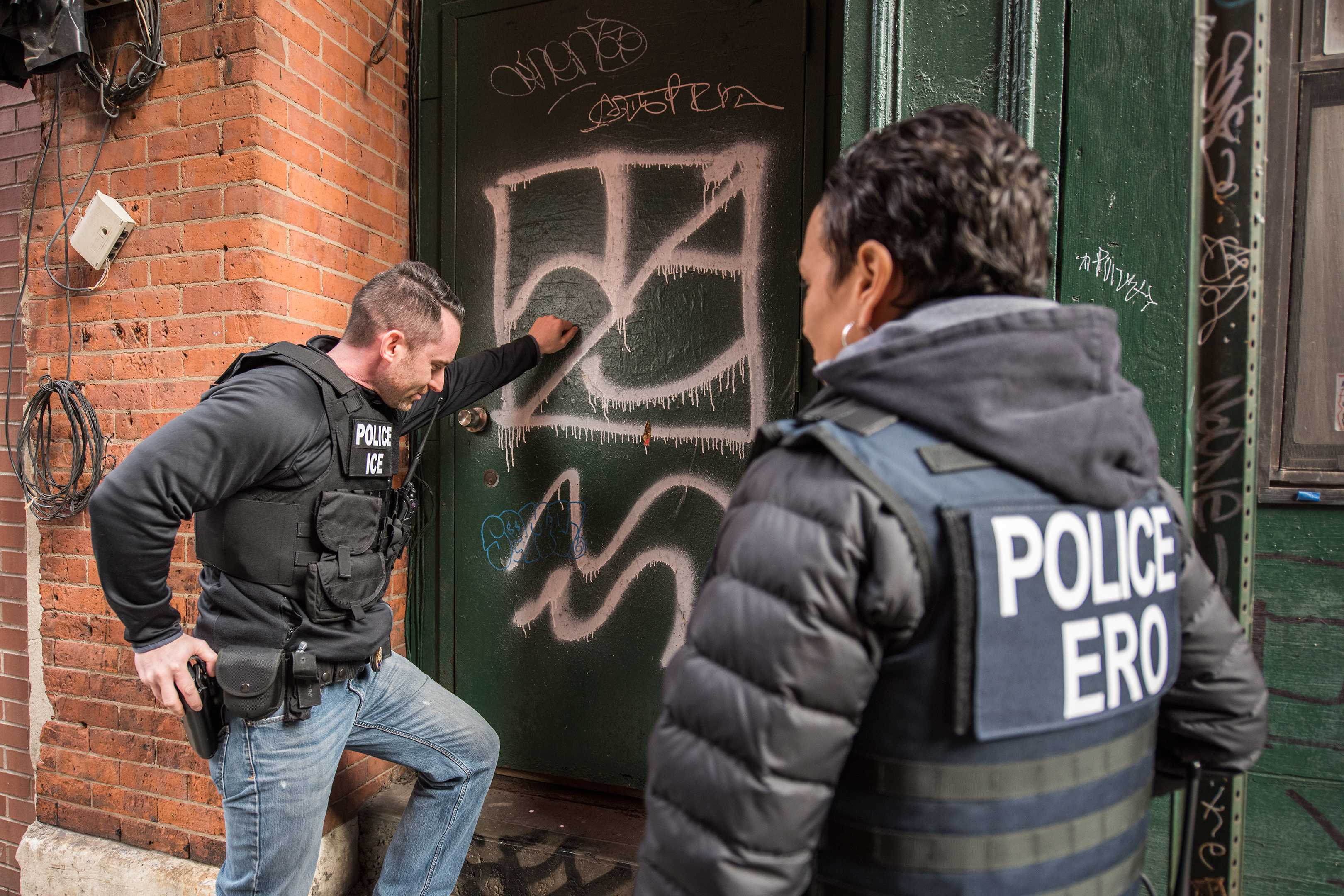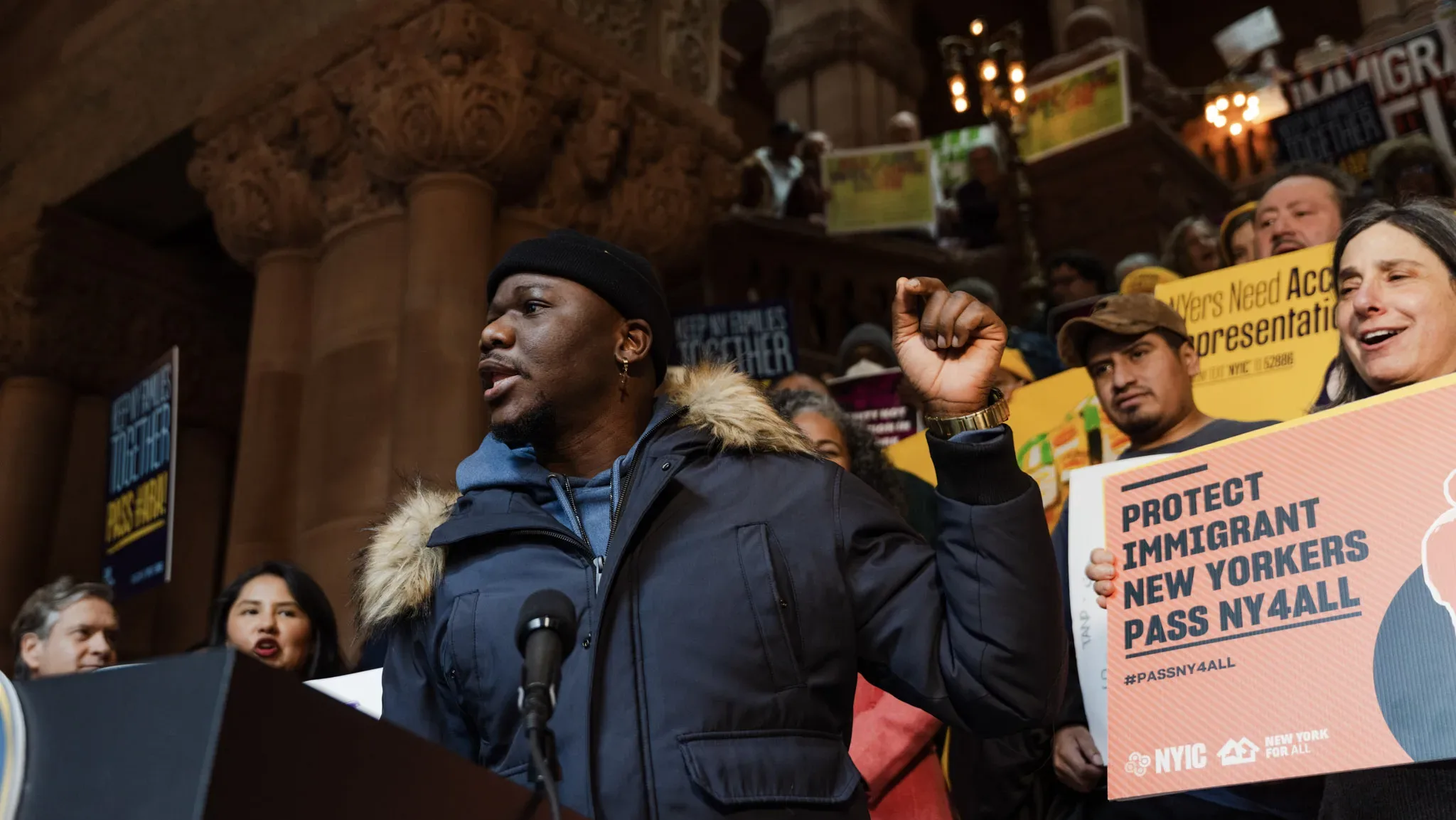Early Arrival’s Community Corner leverages the voices of subscribers, immigration professionals, and our in-house reporters to highlight immigrant affairs, concerns, and reporting. This week, we shine a spotlight on our Immigration Enforcement Reporter Giulia McDonnell Nieto del Rio, who has been with Documented for a year.
She highlights her writing and career growth at Documented, the impact of stories she has written, and how she covered them. She also teases two stories she is currently working on, which are soon to be published.
How did you find out about Documented?
I read Documented a lot while I was in grad school at Columbia. And I remember students talking about [Documented co-founders] Max and Mazin, and the organization they had started, in school. I was focusing on immigration reporting at Columbia so we would read their newsletters a lot, especially for our city newsroom class. And I always loved the work that they did. So, when I was later applying for a job to follow the New York Times fellowship, I was looking at the Report for America newsrooms, and I was really excited to see Documented on there.
So this week makes it a year since you joined the team. What has this journey been like for you?
At first, I was a little bit overwhelmed by how many stories and venues to go down with immigration reporting in New York. And specifically, I was brought on to do reporting on courts in detention. There are so many stories to tell about that. I spent the first couple months really trying to build relationships with sources in the community and keep on top of when developments were happening.
But I did definitely find it overwhelming at first, especially because I was suddenly doing a lot of reporting on immigration detention, and I hadn’t reported much on that specific topic before.
Also Read: Guide to New York’s Proposed Immigration Reform
Detention can be a pretty complicated system, and immigration court system can be too. So in every story, I tried to find a way to disseminate what experts and people were telling me in a way that would reach a broader audience. So making some stories more readable for everyone, and building trust with sources was crucial, because most of the stories are super sensitive situations.
I did this before coming to Documented, but I saw it as extra important to give sources a chance to ask me questions and have conversations with them about what their comfort level is in certain situations, being a new reporter on the immigration beat in New York.
How would you say your writing has grown from that time until now?
In the past six months, I have tried to lean into my own voice as a writer a little bit more. I feel like I have more authority over my beat, although I still have so much to learn. But at least I have more time under my belt, I’ve had way more conversations, done more stories, and learned from more people.
How would you say that you center the local immigrant experience in your work as an immigration enforcement reporter?
In every story, I always strive to center the voices of the folks impacted by whatever policies or actions we are talking about. When detention centers were closing, and people were being transferred out of New Jersey, I was always trying to focus on the voices of folks who were actually being impacted by these transfers.
Of all of the reports that you’ve done so far, what would you say is the one that you’re most proud of writing?
Last year, we were the first news outlet to report that this contract between ICE and CoreCivic, which runs a detention center called the Elizabeth Detention Center in New Jersey, was being renewed until 2023. I was able to find this information out from the transcript of an earnings call that had happened recently at the time. At that same time, there was a bill that had passed in the New Jersey legislature that was waiting for Governor Murphy’s signature and it was basically going to ban new or renewed detention contracts in New Jersey — though there were some caveats.
That was one of the first stories I felt like I really got a grip on the detention system in New Jersey. About a week after our story was published, Governor Murphy did sign the bill after some advocates saw our story and were alarmed by this renewed contract. I was proud to just have brought that to public attention, at least.
And this year, one of the stories I’m most proud of is a story looking at how the resettlement process was going for Afghan evacuees in Albany. I spent some time with one specific family, but I also talked to various community members in the Albany area, who had come in the previous months from Afghanistan, most of whom had fled Kabul. I really liked doing that story because I hoped to illustrate how months after people had arrived in Albany, they were still facing various barriers and challenges in terms of language access, health access and transportation, among other issues. I’m hoping that story was also able to bring some public attention to the fact that Afghan evacuees in the Albany area were still short on resources.
Working on these stories, has it given you any insight into working as an immigration-focused journalist? What makes being an immigration-focused journalist different from other forms of journalism?
Personally, in my reporting, I’ve had to be very careful specifically about how we how do we go about talking to sources with a tenuous legal status or sources who may face any sort of retribution potentially for talking to the media, whether that’s people inside a detention center, or outside who have pending immigration cases. Sometimes we don’t know what effects or what kinds of retaliation people could face for speaking out about certain things. I’ve become hyper-aware of this, and really try to have more conversations with sources about it.
What made you want to do journalism in the first place?
I’m privileged to actually have grown up around a lot of journalism. Both my parents are journalists, my dad’s a reporter, and my mom’s a photojournalist. I sometimes traveled with them on stories when I was younger, especially in South America. So that piqued my interest definitely as a little girl.
I also grew up in an immigrant centered environment–my mom is from Mexico and always spoke to me in Spanish, which I am forever grateful for, since I really feel like it helps me connect with so many people in my reporting. We lived in Los Angeles for most of my time growing up, and part of why I am so interested in immigration reporting is seeing family friends and loved ones go through some of these difficult situations that now I sometimes report on.
In college, I studied Latin American History, and thought about going into academia. But over time, I liked the idea of journalism potentially having a more immediate impact, however small that impact may be. When I started to look towards a path in journalism, I really enjoyed connecting with folks on the spot. So I went to grad school because I felt like I hadn’t developed the important journalism skills in college that I needed.
This next year that you’re about to begin, what are you looking forward to the most? Are there particular stories that you are writing right now that you can shed a little bit of light on?
I am very excited for this upcoming year. I think I really have a handle on what coverage I am looking at and know more sources. One story that is hopefully coming out soon is a story about SmartLink, this app which is used to monitor immigrants who have upcoming court date. Another story that I’m looking forward to is about New Jersey detention, following up on what is happening to folks who ICE is sending to different detention facilities out of New Jersey.
When you’re not working, especially after having so many hard conversations with some of these immigrants and going to some of these places to see the challenges that they are going through, what do you do?
I do love spending time with my friends and going for walks in the city. I sometimes watch reality TV if I want to give my brain a break. I really enjoy going to fun exercise classes, and love trying new restaurants, too!
Sign up for our Early Arrival newsletter to follow Giulia McDonnell Nieto del Rio and her reporting about ICE and immigration enforcement.














